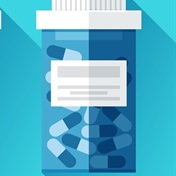MSF said in a statement that newer HIV medicines recommended by the World Health Organization (WHO) can cost up to 50 times more than the cheapest first-line treatments, even when they are available in poor countries.
Call for more genericsThe group called for a boost to the production and availability of generic drugs - which are cheaper because they are no longer covered by patent protection - to treat major diseases.
Countries should make more use of the options available under part of the WTO deal agreed at Doha, Qatar in 2001, known as the Trade Related Aspects of Intellectual Property Rights (TRIPS), MSF said.
TRIPS rules grant poor nations affected by diseases such as HIV/Aids, malaria and tuberculosis a temporary exemption from international laws protecting intellectual property rights.
It enables them to buy cheaper generic drugs from pharmaceutical companies in countries such as Brazil and India.
MSF said further reform to intellectual property rights was needed to ensure generic producers could keep pace with newer and more sophisticated treatments being developed by pharmaceutical companies.
Competition helped cut prices
With Aids, fierce generic competition has helped cut prices for
first-line drug treatment by 99 percent to 130 dollars per patient
from 10 000 dollars since 2000, MSF found.
However, prices for second-line drugs, which patients need as their treatment progresses, remain high, MSF said.
It blamed growing demand for patents on newer drugs by pharmaceutical giants in key generic-producing nations such as India. That could reduce competition from generics and dilute their impact on the market, the group cautioned.
Tido von Schoen-Angerer, director of MSF's Campaign for Access to Essential Medicines, said that while Doha enabled countries to import medicines, it would have little impact if only expensive non-generic products were on the market.
He called on countries where established pharmaceutical producers are based to allow more generic production and exports of essential medicines.
"If this doesn't happen we'll be back where we started in no time because treatment will become unaffordable again," he warned. – (Sapa-AFP)
Read more:
Meds and You Centre
US court OK's delay of generics
November 2006




 Publications
Publications
 Partners
Partners














